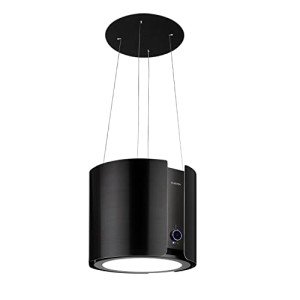Where Do You Think Island Hob One Year From What Is Happening Now?
페이지 정보
작성자 Meridith 작성일25-05-18 11:01 조회1회 댓글0건관련링크
본문
The Island Vent Hood: A Comprehensive Guide to Choosing and Installing the Perfect Kitchen Feature
In modern-day kitchen style, the island vent hood has actually ended up being a vital focal point, effortlessly integrating performance with visual appeal. With the increase of open-concept living areas, where cooking areas are integrated with dining and living locations, the significance of a properly designed ventilation system has actually ended up being vital. This short article explores what an island vent hood is, the various types available, crucial functions to think about, installation tips, and FAQs surrounding this vital kitchen component.
What is an Island Vent Hood?
An island vent hood is a kitchen ventilation system designed to be installed above an island cooktop or range. Unlike conventional wall-mounted hoods, island hoods are suspended from the ceiling, providing a clear view of the cooking location while successfully removing smoke, steam, and odors from the kitchen. This makes island hood extractor hoods an attractive alternative for open designs while guaranteeing a tidy and comfy cooking environment.
Types of Island Vent Hoods
When picking an island vent hood, it is important to understand the numerous types offered in the market. Here are the main categories:
| Type | Description |
|---|---|
| Ducted | Ventilation is directed outside, supplying the very best air quality by expelling air and smells. |
| Ductless | Utilizes filters to clean the air and recirculate it back into the kitchen; easier to set up. |
| Convertible | Can operate in both ducted and ductless modes, offering flexibility in setup. |
| Under-Cabinet | Installed under cabinetry; typically lower output, suitable for smaller kitchen designs. |
Key Features to Consider
Selecting the best island vent hood (nativ.media) involves a number of vital aspects. Here are the important functions to consider:
- Size: The hood ought to be at least as wide as the cooktop. Ideally, it should extend 6 inches on either side for optimal efficiency.
- CFM Rating: The Cubic Feet per Minute (CFM) rating indicates the hood's ventilation power. Greater CFM is necessary for island cooking hood heavy cooking, while lower CFM might be sufficient for lighter use.
- Sound Level: Measured in sones, a lower sone rating shows a quieter operation. A peaceful fan is especially crucial in open-concept spaces.
- Lighting: Many island hoods come geared up with built-in lighting. LED lights are popular for their energy effectiveness and longevity.
- Design: Island vent hoods come in different designs, consisting of modern-day, standard, and commercial. Select a hood that matches the total kitchen island extractor fan visual.
Installation Tips
Installing an island vent hood can be a complicated procedure. Here are some vital suggestions to help with the installation:
- Check local codes and regulations to guarantee compliance with setup height and electrical requirements.
- Determine the hood's height: The top of the hood should be 30 to 36 inches above the cooking surface area, depending upon the maker's suggestions.
- Secure the mounting bracket: Ensure that the installing bracket is properly anchored to the ceiling to support the weight of the hood and motors.
- Ductwork factors to consider: If using a ducted system, ensure appropriate duct size and design for optimum airflow. Prevent sharp bends in ducting, which can impede air motion.
- Electrical setup: Ensure that the electrical connections meet your hood's power requirements, and think about hiring a licensed electrical expert for complicated setups.
Expense Considerations
The expense of an island vent hood can range substantially depending on functions, materials, and brand name. Below is a breakdown of prospective costs related to purchasing and installing these hoods:

| Cost Element | Estimated Range |
|---|---|
| Fundamental Models | ₤ 300 - ₤ 600 |
| Mid-range Models | ₤ 600 - ₤ 1,200 |
| High-End Models | ₤ 1,200 - ₤ 3,000+ |
| Installation Costs | ₤ 200 - ₤ 500 |
Regularly Asked Questions
1. How frequently must I clean my island cooker hoods 60cm vent hood?Regular cleaning is advised, with deep cleaning at least once a month, particularly if you cook often. 2. Can I set up an island vent

hood myself?While it is possible, professional
installation is recommended for safety and optimal performance, particularly with ductwork and electrical connections. 3. Are ductless island hoods effective?Ductless hoods can efficiently filter
smoke and odors, however they may not be as powerful as ducted models. They require regular filter replacements and maintenance. 4. What kind of maintenance does an island ventilation hoods vent hood require?Regular cleaning of filters, lights, and hoods, in addition to inspecting for any wear and tear on motors or ductwork is vital for keeping efficiency
. 5. What kind of filters ought to I use?Most island vent hoods use aluminum or charcoal filters. Aluminum filters are multiple-use, while charcoal filters need to be changed
regularly. The island vent hood is a crucial element of a modern-day kitchen, offering exhaustion of undesirable odors and making a striking design declaration. Selecting the best type, understanding essential
features, and sticking to proper setup techniques will guarantee optimum efficiency and durability of this kitchen home appliance. Whether you are a skilled chef or an occasional home cook, the right island vent hood can significantly boost your cooking experience. By following the standards and factors to consider laid out in this short article, house owners can make informed decisions and enjoy a cleaner and more satisfying cooking environment.
댓글목록
등록된 댓글이 없습니다.
